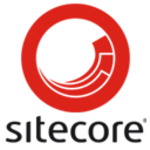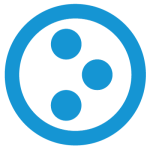What is most valuable?
<ol> <li>Feature-rich</li> <li>Open source </li> <li>Highly extendable</li> <li>Being actively developed</li> <li>Helpful, collaborative community</li> <li>free</li> </ol>
How has it helped my organization?
Significantly less time spent on production issues and maintaining existing functionality, translating into significantly more time adding new and enhanced functionality.
What needs improvement?
Migration from one major version to the next major version requires significant effort.
For how long have I used the solution?
I have been using this solution for 5 years.
What was my experience with deployment of the solution?
No issues with deployment.
What do I think about the stability of the solution?
No issues with stability.
What do I think about the scalability of the solution?
Initially, yes. Help from experienced consultants ameliorated this.
How are customer service and technical support?
Customer Service: Excellent. There are always people in the community online and willing to have discussions. Each individual “module” (i.e., extension) has an issue queue where questions and issues can be brought up, discussed, and resolved. And there are consultancies available for contracted support.Technical Support: Excellent. The technical level of the community is high, as is that of consultancies.
Which solution did I use previously and why did I switch?
Yes, several. Moved one site from flat files and homegrown systems, and others from Microsoft CMS 2002, all to enhance our ability to provide new and improved features and to decrease risk. Moved another from a customized (and therefore unmaintainable) version of Xoops. Moved others from hosted services to improve supportability.
How was the initial setup?
Setting up Drupal itself is straightforward. Implementing all the functionality required for a large, complex site becomes a large work effort. There are thousands of community modules available to add functionality, so determining the best way to add functionality (if you do not have trusted, experienced Drupal developers in-house) becomes a multi-pronged activity of discussions with the community, searching and comparing existing modules, and decisions about using them versus building custom modules.
What about the implementation team?
Our largest sites have been implemented using blended teams of consultancies and in-house developers. Our smaller sites have been implemented by in-house developers. The vendors we have used have high levels of expertise.
What was our ROI?
I can’t provide numbers, but I can say that our key metrics have improved dramatically.
What's my experience with pricing, setup cost, and licensing?
Zero setup cost for most of our sites. We acquired servers to ensure our largest sites could handle large volumes of visitors. Our ongoing day-to-day cost is just the cost of employee time. We have a small devops team managing the infrastructure and several small teams of developers creating new and improved functionality.
Which other solutions did I evaluate?
We evaluated hundreds of other options.
What other advice do I have?
Do NOT implement your first site without the aid of an experienced, collaborative expert. It is very easy to build a Drupal site extremely poorly, and an expert will guide you toward using Drupal the way it works best.
Disclosure: I am a real user, and this review is based on my own experience and opinions.













